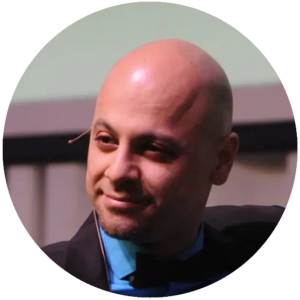Cocaine addiction has long been a challenge in bustling cities like Los Angeles, where the pressures of modern life can often push individuals toward destructive habits. Cocaine, a powerful and highly addictive stimulant, has historically found its way into many social circles across the city. According to the National Survey on Drug Use and Health (NSDUH), in 2015, 968,000 people aged 12 or older initiated cocaine use in the past year.
For those caught in the clutches of this addiction, seeking timely and comprehensive care is essential. At Pathways Recovery Center, located in Azusa and serving residents of Los Angeles County and beyond, we provide personalized cocaine addiction treatment programs designed to address the unique needs of our diverse community. Whether you or a loved one are struggling with cocaine use, our evidence-based therapies and compassionate care can help you reclaim your life.
Los Angeles is home to a dynamic, fast-paced lifestyle, but it’s also a region deeply affected by substance abuse. The California Health Care Foundation reports that substance use disorders, including cocaine addiction, are prevalent throughout Los Angeles County. Seeking treatment in this area offers access to world-class facilities, experienced professionals, and a supportive recovery community.
At Pathways Recovery Center in Azusa, we provide a serene environment on the outskirts of LA, allowing patients to heal away from the distractions of urban life while remaining close to home. Our programs are tailored to meet the needs of individuals in Los Angeles, combining proven medical treatments with holistic care for long-term recovery.
Cocaine is derived from the coca plant and is frequently encountered in its white, powdery form or as crack cocaine. As a stimulant, it revs up the central nervous system, providing users with an intense, albeit short-lived, feeling of euphoria. This potency is also what makes cocaine exceptionally addictive. With just a few uses, individuals can find themselves craving its exhilarating effects, ushering in a relentless cycle of dependence.
The allure of cocaine isn’t just about the short-lived euphoria it grants—it also tends to feed the ego, convincing users they perform better, feel more confident, and are more alert under its influence. These effects complicate the process of breaking free from addiction. In Los Angeles, cocaine’s widespread availability and its reputation as a “party drug” have amplified its misuse, particularly in high-pressure social and professional settings.
The science behind this addiction centers on the brain’s reward pathways. Upon ingestion, cocaine triggers a pronounced release of dopamine—a neurotransmitter intimately connected to sensations of pleasure, mood regulation, and energy. As this becomes a repeated action, the brain starts relying heavily on cocaine to experience these elevated feelings. What may start as an occasional indulgence can quickly transform into a gripping addiction, emphasizing the perilous nature of this drug.
The financial repercussions of cocaine use shouldn’t be underestimated. Many individuals find themselves delving deeper into financial turmoil due to the costly nature of this addiction. This financial strain sometimes even pushes users toward cheaper, yet potentially more harmful alternatives like crack cocaine, highlighting the critical differences in the crack vs. cocaine debate.
Recognizing the signs of addiction and seeking help early are critical steps in breaking free from cocaine’s grip. At Pathways Recovery Center, we provide compassionate, evidence-based treatment tailored to the needs of individuals struggling with cocaine addiction in Los Angeles.
Detecting cocaine addiction early is more than just a proactive approach—it’s a lifesaver. Recognizing the initial signs can catalyze seeking timely intervention, enhancing the chances of a successful recovery journey. Beyond the immediate, often euphoric effects that cocaine presents, there’s an array of behavioral and physical indicators that can hint at a developing dependency.
The first step in many treatment programs, detoxification helps remove the drug from the system and manage withdrawal symptoms. A medically supervised detox program ensures patient safety, monitoring critical factors like blood pressure and heart rate to prevent complications during withdrawal. Our cocaine rehab facility also provides a supportive environment to address co-occurring mental health conditions and promote overall well-being.
Evidence-based therapies such as cognitive-behavioral therapy (CBT) and dialectical behavior therapy (DBT) play a crucial role in understanding the root of the addiction and equipping individuals with strategies to prevent relapse. Therapy sessions may include individual therapy, family therapy, and group support, fostering a comprehensive approach to recovery.
While there's no FDA-approved drug specifically for cocaine addiction, some medications can alleviate withdrawal symptoms or reduce cravings. These are often integrated into a broader treatment plan developed by experienced medical professionals at our treatment facility.
Connecting with others who are undergoing or have undergone similar experiences can offer invaluable support and insight. Support groups are an essential part of outpatient treatment and long-term recovery. These groups often complement residential treatment or serve as part of a dual diagnosis approach, addressing both substance use and mental health disorders like anxiety or depression.
At our rehab center, we prioritize creating a treatment plan tailored to the individual’s unique level of care. Our focus on addressing both cocaine abuse and its impact on overall well-being ensures that every patient has the tools they need for sustained recovery and a healthier future.


Dr. Moses Nasser, a double board-certified physician in Family Medicine and Addiction Medicine, with expertise in holistic healing, addiction medicine, and psychiatric care, holds an X-waiver to prescribe buprenorphine and has extensive experience in mindfulness-based customer service and medication-assisted treatment.
Additional Resources on Alcoholism:
How Is Cocaine Addiction Treated?
Understanding Cocaine Addiction